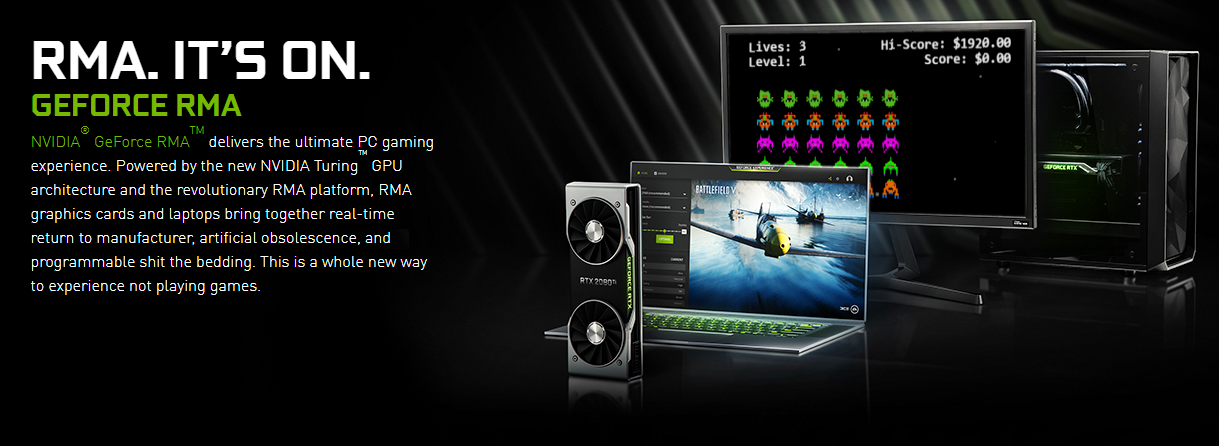My EVGA 2080ti Black Edition artifacting and crashing with every single game today, Its been two days since I received the card. I purchased it on this of 19ths December and it arrived on the 22nd. It seemed to work fine the first two days but all the issues started this evening when I try to play some Just Cause 4. I also tested some Assassin Creed Odyssey and Battlefield 5 and the exact same thing happens. Even No Mans Sky is Artifacting.
I Have no overclock applied to it what so ever, all the settings are at default and I reinstalled the Nvidia drivers using DDU twice, as you can see from the videos above it has heavy artifacting which leads into a crash as soon the game starts.
Just Cause 4:
https://imgur.com/a/zAfc7qf
Just Cause 4 Youtube:
No Mans Sky:
Unigine valley:
Time Spy:
My spec:
Intel i9 9900k
Corsair DDR4 32GB 3200Mhz RAM
ROG MAXIMUS XI HERO Z390 Motherboard
LEADEX PLATINUM 1000W FULLY MODULAR 80 PLUS PLATINUM (I am using 2 Independent PCI-E 8 Pin power cables from different connections on the PSU also.)
SSD Samsung 970 Pro 512GB
I knew the 2080tis were having problems but I did not expect them to be this bad, Now I'm left with Intel HD graphics, This really sucks!
I Have no overclock applied to it what so ever, all the settings are at default and I reinstalled the Nvidia drivers using DDU twice, as you can see from the videos above it has heavy artifacting which leads into a crash as soon the game starts.
Just Cause 4:
https://imgur.com/a/zAfc7qf
Just Cause 4 Youtube:
No Mans Sky:
Unigine valley:
Time Spy:
My spec:
Intel i9 9900k
Corsair DDR4 32GB 3200Mhz RAM
ROG MAXIMUS XI HERO Z390 Motherboard
LEADEX PLATINUM 1000W FULLY MODULAR 80 PLUS PLATINUM (I am using 2 Independent PCI-E 8 Pin power cables from different connections on the PSU also.)
SSD Samsung 970 Pro 512GB
I knew the 2080tis were having problems but I did not expect them to be this bad, Now I'm left with Intel HD graphics, This really sucks!
![[H]ard|Forum](/styles/hardforum/xenforo/logo_dark.png)
